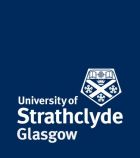Language
Language is a system that consists of the development, acquisition, maintenance and use of complex systems of communication, particularly the human ability to do so; and a language is any specific example of such a system.
Speech
Speech is the vocalized form of communication used by humans and some animals, which is based upon the syntactic combination of items drawn from the lexicon. Each spoken word is created out of the phonetic combination of a limited set of vowel and consonant speech sound units (phonemes). These vocabularies, the syntax that structures them, and their sets of speech sound units differ, creating many thousands of different, and mutually unintelligible, human languages. The vocal abilities that enable humans to produce speech also enable them to sing.
Therapy
Therapy (often abbreviated tx, Tx, or Tx) is the attempted remediation of a health problem, usually following a diagnosis. In the medical field, it is usually synonymous with treatment (also abbreviated tx or Tx). Among psychologists and other mental health professionals, including psychiatrists, psychiatric nurse practitioners, counselors, and clinical social workers, the term may refer specifically to psychotherapy (sometimes dubbed 'talking therapy'). The English word therapy comes via Latin therapīa from Greek: θεραπεία and literally means "curing" or "healing".
Therapy
Skillful, state-of-the-art therapy requires constant practice and training.
David D. Burns, in: Ryan Howes "Seven Questions for David D. Burns" at psychologytoday.com, 7 January 2009.
Speech
Just at the age 'twixt boy and youth,
When thought is speech, and speech is truth.
Walter Scott, Marmion (1808), Canto II. Introduction.
Speech
The whole problem of life, then, is this: how to break out of one's own loneliness, how to communicate with others.
Cesare Pavese, This Business of Living, 1939-05-15

